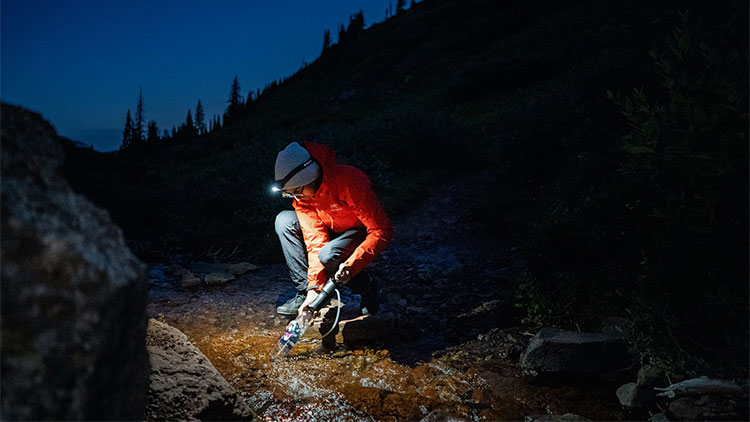
We all need clean water if in order to live. During a drought or disaster, this need for clean water becomes of even greater. Looking at the many products to address this need, preppers might feel overwhelmed. Do you need a water filter or purifier? What’s the difference? What works best?
The short answer is a water filter is best for general backcountry use whereas a water purifier is best for travel to less-developed countries. For our purposes, however, we are looking at things from a prepper’s perspective. We will cover health in general, specifically the removal of minerals that aid health, but generally we are concerned with what it takes to have safe, potable water.
But maybe this isn’t even you, a prepper trying to make sure you’ll have safe drinking water during a survival situation. Let’s say you just want to protect your family’s health, and you view clean water in the home on a daily basis as part of that. This article can be informative for you as well.
You’ll see words such as ‘filter’ and ‘purifier’ tossed around throughout the marketplace, often interchangeably. Unless you know what these words mean, you may not be investing in the product that you actually want or need. So let’s take a closer look at the subject.
Table of Contents
Differences Between Filtration and Purification
This is most certainly a confusing topic to cover, so you’ll find a lot of misunderstanding and (wrong) swapping of terms between the filtration and purification processes. In a nutshell, water filtration is the process of sending water through a filter that removes harmful things like bacteria, chlorine, and some chemicals. Water purification is a process that removes nearly all microbes and chemicals.
An easier way to imagine the difference is to think of tap water. Water coming out of a household faucet has almost certainly been sent through a filter. In the case of a well, the ground itself acts as the filter. In the case of municipal water, the water is sent through mechanical filters. That filtration process does not remove everything, however. For example, you can still have contaminated groundwater coming from a well. The ground cannot filter out things like hydrogen sulfide, petroleum, etc. Water would have to be purified to remove those.
Water Filtration
Filtering involves a filter (duh). Provided you have some type of barrier that dirty water has to pass through to get to a container where it is now clean water, you have a water filter. The majority of backpacking water filters on the market fall into this camp. Examples include Berkey water filters, LifeStraws, and even homemade 2L soda bottle charcoal and sand filters.
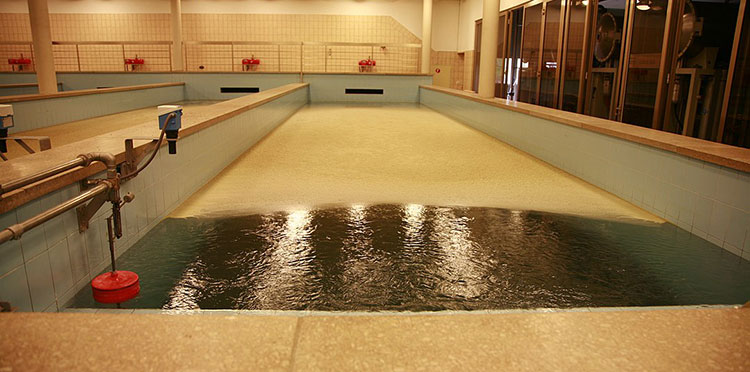
What these do is filter out the tiny little particles that are in your water. Dirt, fecal matter, bacteria, cysts, and other microscopic particles are all caught by the filter and removed from the water. To an extent, like structured water filters, it can also improve water’s texture.
Water Purification
In contrast, a water purifier doesn’t try to remove the contaminants – it eliminates or kills them entirely (or near entirely). There are essentially three methods of water purification: reverse-osmosis, deionization, and distillation.
Examples of water purifiers include a SteriPen, the sun, and AquaMira drops. Some are most certainly more comprehensive than others (e.g. a SteriPen compared to AquaMira), but they all help make water safer to drink.
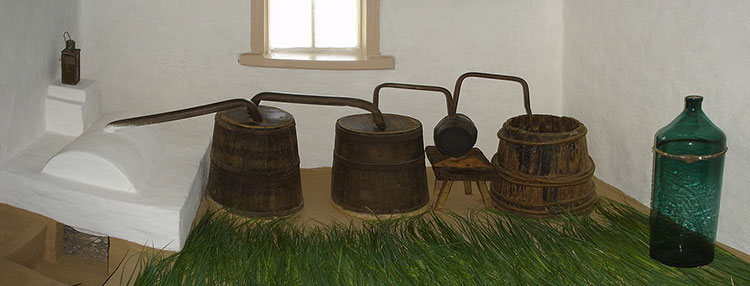
However, there are other methods of water purification as well – namely, distillation and reverse osmosis. Let’s say you’ve set up a solar still in the middle of the Arizona desert. The water you collect will be purified. Again, let’s imagine you put a plastic bag over a tree limb to distill out some water in the midday heat. Any of the water that you collect will be free of the impurities it would have had because it was distilled – it was formed by an accumulation of evaporated water.
Whether we’re talking about distillation or reverse osmosis though, both options actually remove minerals from water as well. While this may sound good, minerals within your water can be very beneficial to your health.
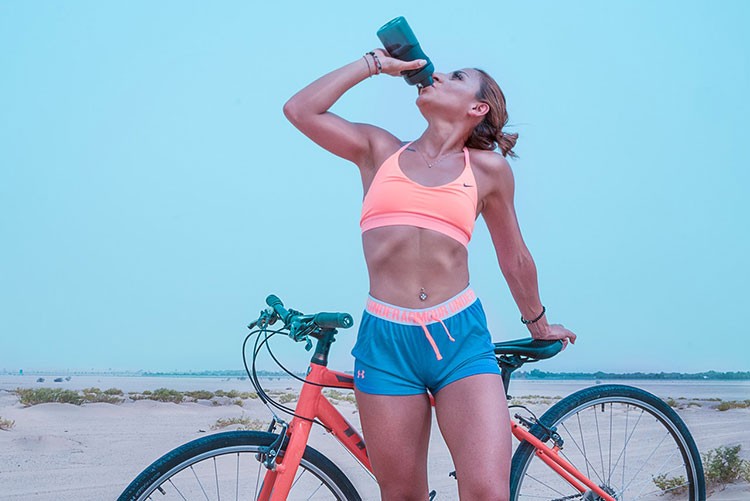
Your calcium, magnesium, and potassium levels are all in part benefited by drinking mineralized water. That’s most certainly something to take into consideration if you’re looking at systems you intend to use daily for health purposes.
Common Filtration and Purification Products
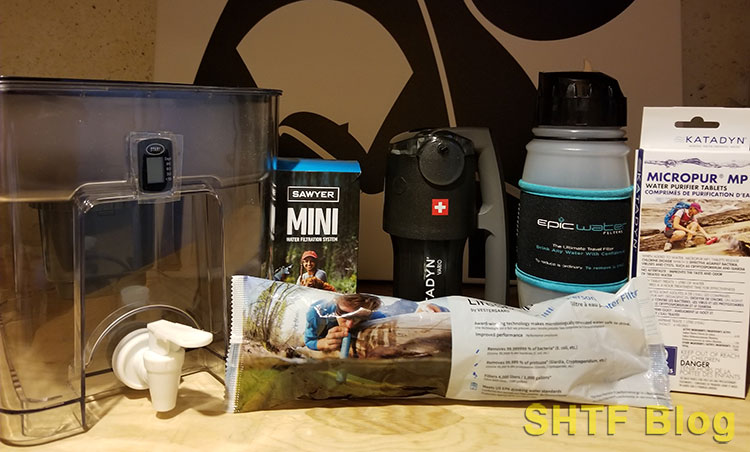
As touched upon above, there are a number of different tools we can use for each process – whether we’re talking about filtration or purification. Experienced preppers will already be familiar with most of the products mentioned in this section, but for everyone else’s sake we’ll take a look at each.
Filtration
Most preppers interested in a product to make safe drinking water in the woods or on the go will likely find themselves looking first at water filters. The majority of these filters are made of porous substances, often activated carbon. Activated carbon is one of the most effective ways to remove water sediment, chemicals, and toxins, all while improving the taste through the carbon itself.
A good water filter is all most outdoorspeople will need to drink safely in the backcountry. Following are some of the most common water filter products preppers choose to purchase.
LifeStraw
This is easily one of the most well-known “prepper” water filters of all time, and with good reason. They’re incredibly affordable, work fantastic, and can fit into any bug-out bag or EDC kit out there. With a LifeStraw you can filter out 99.99% of parasites and 99.99% of bacteria. Within a survival setting, that can very easily keep you alive and from getting Giardia or some other type of gut-wrenching disease.
- Protects against 99.999999% of bacteria (including E.coli, Salmonella; 99.999% of parasites (including Giardia and Cryptosporidium); 99.999% of microplastics, silt, sand, and cloudiness
- Ultralight and durable, the LifeStraw weighs less than 2 ounces (46 g) so you can pack it anywhere
And for those who are interested in general health purposes, LifeStraw offers a number of reusable water bottle options that can filter out microplastics as well.
Berkey Water Filter
I’m personally of the belief that these are best for daily health reasons. While you could easily use a Berkey as a countertop means of water purification post-disaster (e.g. after being given a boil water alert), I think that where they really shine is in their ability to filter out some very dangerous chemicals from your daily drinking water – particularly if you’re attached to city water.
No products found.
Numerous reports have shown pesticides, herbicides, medications, microplastics, and other chemical nasties within city-supplied water even after the city cleansing process, and unless you want to be putting all of those into your system, you’re going to want some type of water filter. This is where a Berkey shines. They’re expensive, but I’d argue regularly drinking chemical funk can very quickly to prove even more so.
Katadyn Water Filter
When I go backpacking, virtually every hiker I see has a filter of this type. No batteries required, a small size, and no need to get down on your stomach to suck water through a tube, make pump-style water filters very popular amongst outdoorsmen. It removes 99.99% of bacteria and cysts too, and I’ve met enough people who have spent months on the trail to know that these little boogers do in fact work.
- Freedom to Drink, Anytime, Anywhere: Perfect companion on camping trips, hike, trail runs, biking tours, fishing trips, and more! Enjoy safe drinking water in anywhere, anytime! The Katadyn Hiker water filter includes a carry sack and bottle adapter that fits most water bottles. The easy Fill Bottle Adaptor attaches directly to a drinking bottle
- Superior Filtration: Removes particles, protozoa, and bacteria down to 0.2 microns (.002mm), including giardia, salmonella, and cryptosporidia. Glass-fiber element is pleated for increased surface area to handle silt and muddy water
They’d be well worth your considering for a bug-out bag or car survival kit.
Purification
Most water purifiers are going to remove 95% or more (often more) of all contaminants in the water. For the average outdoorsperson, a water purifier is unnecessary. It’s overkill, because in the backcountry you are more likely to encounter bacteria, which is easily filtered out. Viruses, on the other hand, require chemical purification or some other purification method.
While a filter might be well-suited to the backcountry, it’s less-suited to places where humans are readily present. Water purifiers are best when traveling to less developed countries. This is a safer option in these cases, because you are more likely to encounter viruses in the water.
SteriPen
This is my personal favorite way to get clean water when I’m out in the mountains for an extended period of time. While, yes, you do need batteries for this to work, I like the satisfaction I get from knowing that even viruses are no match for the power of UV light. This kills everything. The caveat I’ll add here though is that I only use this in water that I’m certain has little to no contamination from chemical sources.
- Battery powered Ultraviolet light water purifier that is perfect for travel and outdoor use. Purifies up to 150 liters on one set of AA batteries
- Purifies a half liter of water in 48 seconds or 1 liter in 90 seconds. Simple and easy to operate. Device activates when the lamp is placed in water, simply insert and stir until the light shuts off.
All you’re doing here is killing living things – not filtering out any form of chemical (e.g. pesticides and herbicides) whatsoever. So if you’re making a bug out backpack for a long trek through rural regions where agricultural runoff has likely resulted in the water you’re going to be able to access being heavy in contaminants, you may want to rethink this as an option.
Aquamira Water Treatment
A chlorine treatment that kills Cryptosporidium and Giardia. I think it’s preferable to other chemical options, but that’s just me. The good thing about AquaMira though is that you can actually stomach it compared to Potable Aqua.
- Kills odor causing bacteria and enhances the taste of stored potable water
- Treatment has a 4 year shelf life from manufacturing date
I don’t like throwing up in general, but especially not when I’m already dehydrated and on a multi-day backpacking trip. This is where AquaMira shines over other chemical options.
Potable Aqua
I personally hate this stuff and any of its knock-off cousins, but it is a means to help purify water and make it safe to drink. It’s a treatment that helps to kill some of the bad guys in the water and is a two-step process. The second step is usually just a means of making the water a bit more palatable. I don’t find it works much on the latter.
- One Bottle Of 50 Potable Aqua Water Purification Tablets And One Bottle Of 50 Potable Aqua Pa Plus Tables
- Water Purification Tablets Make Questionable Water Bacteriologically Suitable To Drink In Emergency Water Situations
I mainly keep it in my bag as a back up to my main means of water purification. I recommend packing some type of instant coffee or something to mix in with this as well just so you can stomach it.
Portable and Domestic Filters and Purifiers
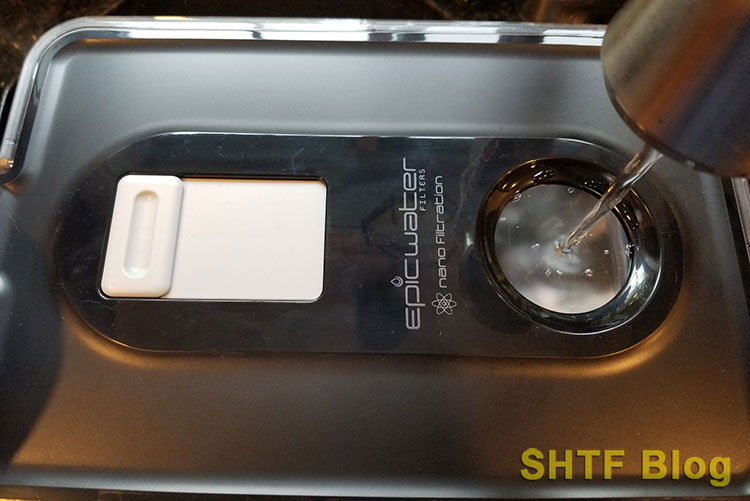
For some people, whether it’s a water filter or purifier doesn’t matter so much so long as the water is potable. Preppers would fall into this category. We want ways to safely stay hydrated when the water we take for granted every day is suddenly not available or is otherwise unsafe.
Portable
You’re a prepper, right? That’s why you’re visiting this site? That probably means you have bug out plans and you’re interested in having some means of getting safe water that’s portable, something that can easily be on your person when you need it most. So when it comes to picking the right method for you and your bug out bag, let’s look at our options:
| Method | No More Bacteria | No More Viruses | No More Chemicals | Easy to Use | Low-Cost Option | Less than 15 Minutes To Use | Easily Fits in a BOB |
| Boiling | X | X | X | X | |||
| Chemical Treatments | X | X | X | X | |||
| UV Light | X | X | X | X | X | ||
| Pump Water Filters | X | X | X | X | X | ||
| Suction Water Filters | X | X | X | X | X | ||
| Gravity Water Filters | X | X | X |
Domestic
If you’re looking for something for home/basecamp use, something that’s not going to need to be stuffed inside a BOB to quickly hit the road, I recommend that you check out what EPIC Water Filters has to offer. You can call us biased, however, biased because they’re based in the United States and biased because the founder has a long history working with Derrick James of this site and Prepper Press. In other words, EPIC knows prepping.
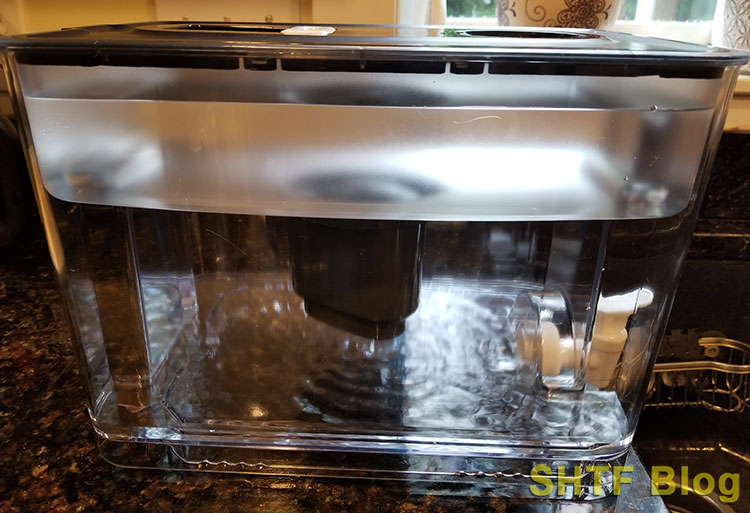
Besides that, Epic is a heck of a lot cheaper than a Berkey water filter and will help you to protect your family’s health with a very economical product. Check out our table below to pick the best option for you:
| Model | No More Bacteria | No More Viruses | No More Fluoride | No More Herbicides/Pesticides | No More Microplastics | Under $100 |
| EPIC Nano Water Filter Pitcher | X | X | X | X | X | X |
| EPIC Nano Water Filter Dispenser | X | X | X | X | X | X |
| EPIC Pure Water Filter Dispenser | X | X | X | X | X | |
| EPIC Pure Water Pitcher Dispenser | X | X | X | X | X |
Of course, there are alternatives to Epic, they’re just the company we prefer.
Water Filter or Purifier Summary
Clean water to drink is an absolute must post-disaster, and the best time to ensure that you will have access to it is now. Waiting until there’s a desperate need is one of the best ways to guarantee that you’re not going to have the best options available to you.
If you’re currently in the market for water purifiers and filters due to this understanding, hopefully this article has helped to clear up the water for you. Worst case scenario if you find yourself without a water filter or purifier – boil it!
Do you have any of the above options? Are there products we didn’t include you believe deserve a shout out? Let us know in the comments below!






1 comment
RapidPure Intrepid should be good. Bacteria, parasites, chemicals, pesticides, heavy metals, and microplastics all removed. $60 at Sportsman’s Warehouse.